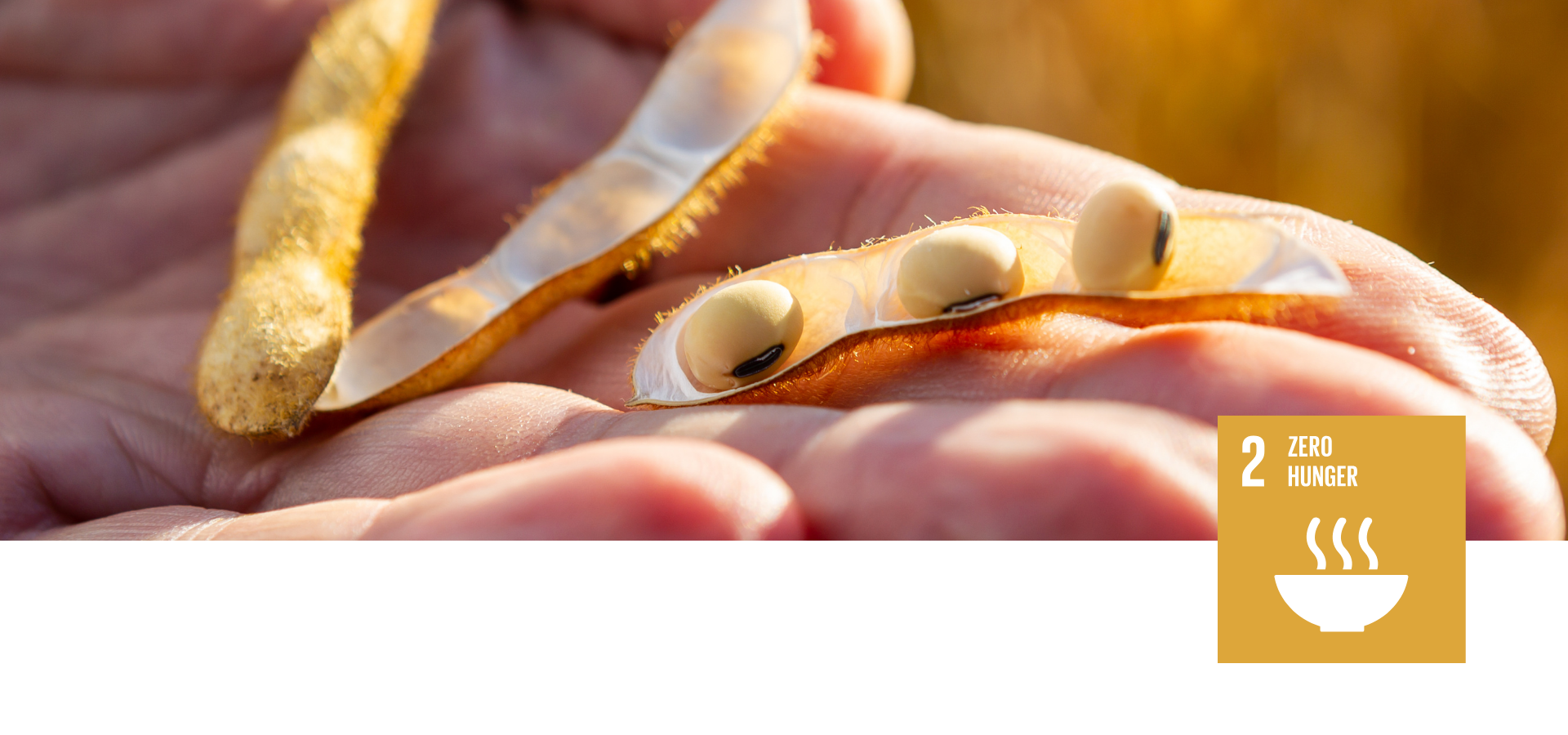
SDG 2: Zero Hunger
Recognizing the urgent need to address food insecurity and promote sustainable agriculture, HKUST encourages research in efficient food production while educating members in sustainable food management and environmental impacts from food waste. In addition, we engage and educate the community through organic gardening practices on campus. Through our policies and collaborations with passionate NGOs, the university is fully committed in promoting sustainable catering practices and serving the community beyond the campus, creating pathways to redirect food surplus to those in need.
Curriculum
33 related courses were offered in the 2023-24 academic year.
Research
According to Science Direct, from 2020 to 2024, HKUST published 53 research papers addressing SDG 2.
28.3% of them are in the top 10% cite score and 83% are internationally co-authored.
Research Highlights
AI-enabled Model to Help Mitigate Global Ammonia Emissions from Cropland
Harnessing the power of machine learning, this groundbreaking study not only revealed that global NH3 emissions from cropland are lower than previously estimated but also demonstrated how optimizing fertilizer management can effectively reduce emissions by approximately 38%, without compromising the overall use of nitrogen fertilizers. It provides valuable insights for policymakers worldwide to address the United Nations' Sustainable Development Goals related to poverty eradication, food security, and sustainable agriculture.
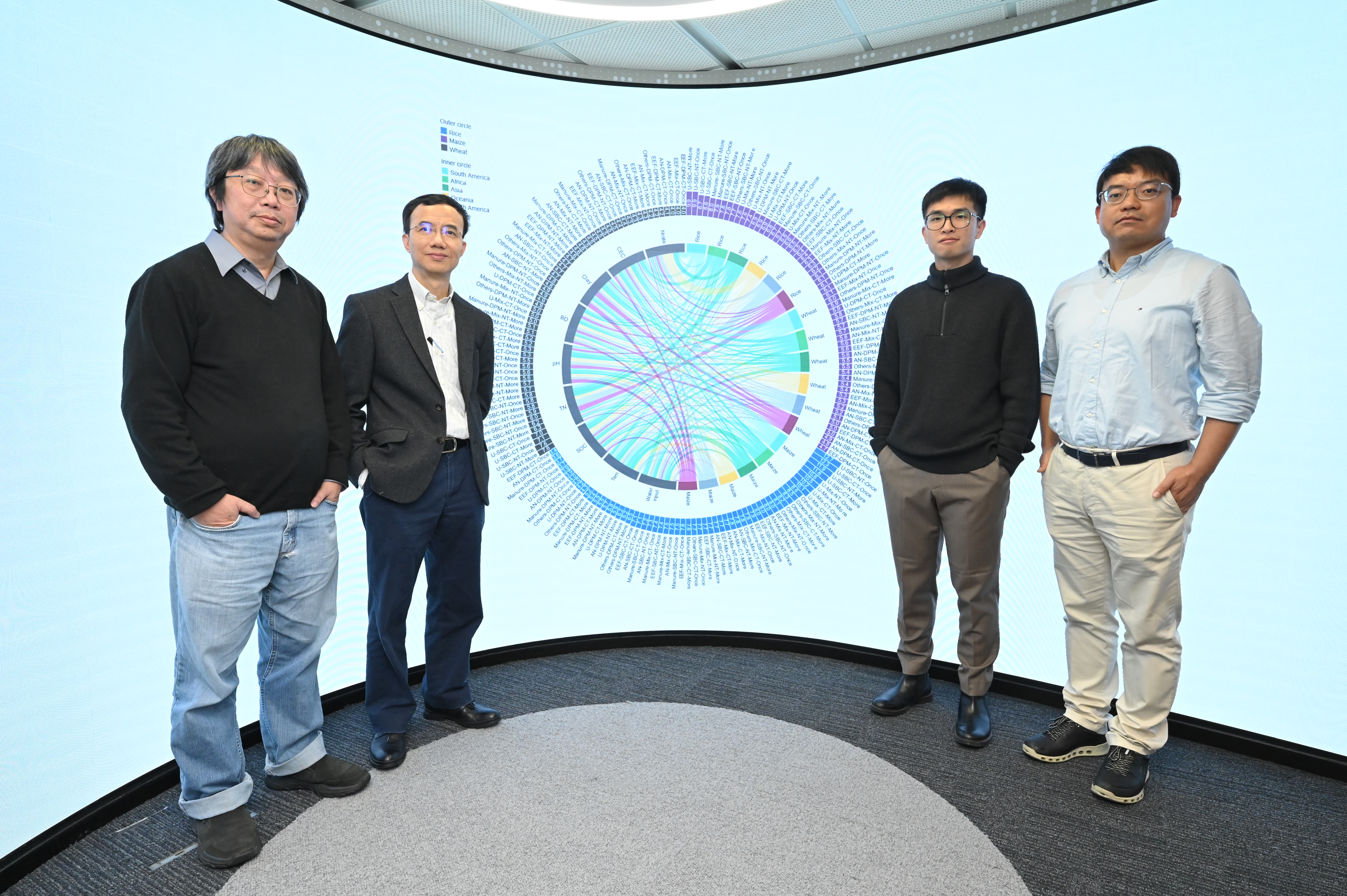
(From the left) Prof. Alexis Lau, Prof. Jimmy FUNG, Mr. LI Geng, Dr. Zhang Xuguo.
Policy
Sustainable Food Operation Policy
With the significant demand for food among the campus community, HKUST recognizes its responsibility to address sustainability impacts arising from food and catering. This HKUST Sustainable Food Operation Policy covers all food procurement and disposal on campus, covering caterers, offices, and events.
Sustainable Catering Policy
The HKUST Sustainable Catering Policy aims to promote sustainable food practices, reduce food waste, and foster responsible consumption. Caterers are required to develop sustainable food plans, follow sustainable seafood guidelines, and use environmentally preferable cleaning chemicals. The policy encourages organic farming and engagement in sustainable learning experiences to create clean, healthy, and environmentally responsible food services and foster a sustainable food systems within the university community.
Community Engagement
HKUST Bread Run
To combat the plethora of food waste sent to landfills in Hong Kong, the HKUST Bread Run was an event to collect surplus bread from bakeries across Hong Kong and pass them to the food bank for those in need.
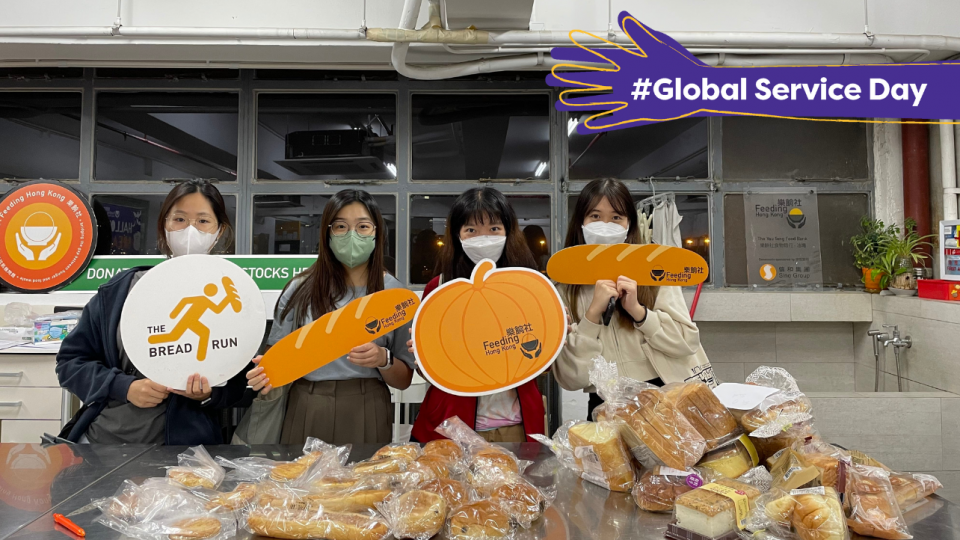
23 April 2024: Volunteers collected surplus bread from bakeries.
Food Parcel Packing
In collaboration with Feeding Hong Kong, HKUST organized the Food Parcel Packing event to assist warehouse staff in unpacking food, conducting quality checking and putting into food parcels for charity deliveries.
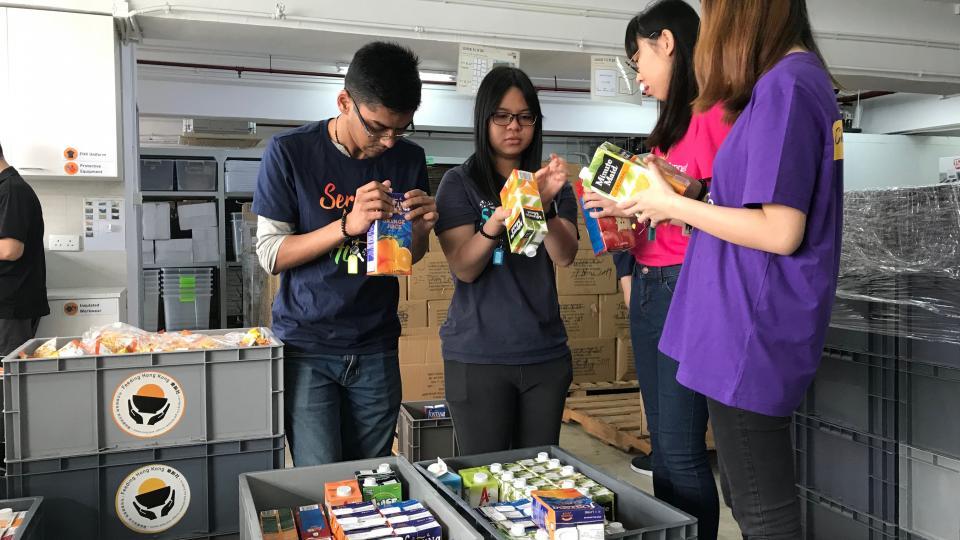
8 November 2023: Volunteers conducting quality check for deliveries.
Volunteering @Feeding Hong Kong Warehouse
HKUST organized the Feeding Hong Kong Warehouse for a tour for volunteers to learn how food waste and poverty can be tackled in Hong Kong through food banking.
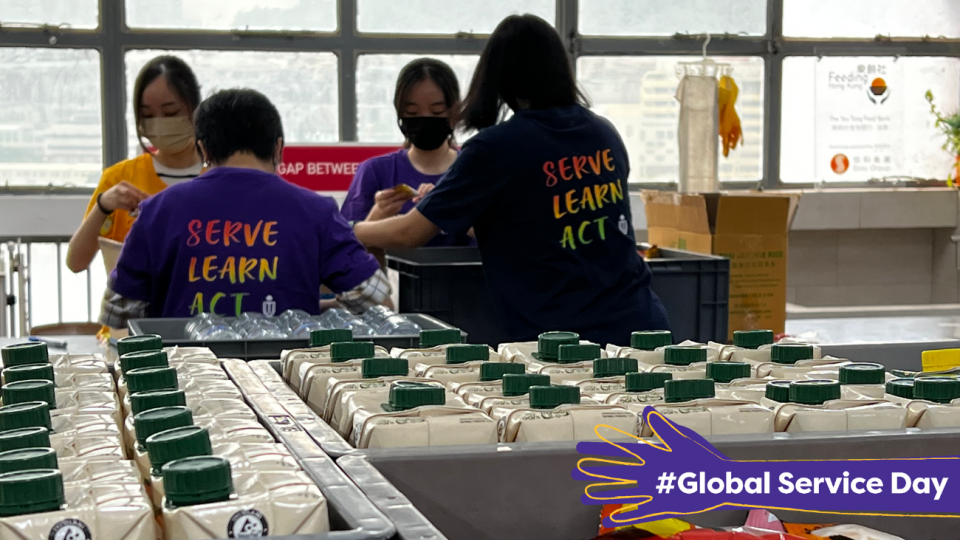
19 April 2024: Students sorting food donations at Feeding Hong Kong’s warehouse.
Food Recycling Action @Wet Market
Our Food Recycling Action @Wet Market initiative rescues fresh, unsold produce from Tseun Wan’s Lei Muk Shue wet market and delivers it directly to those facing food insecurity.
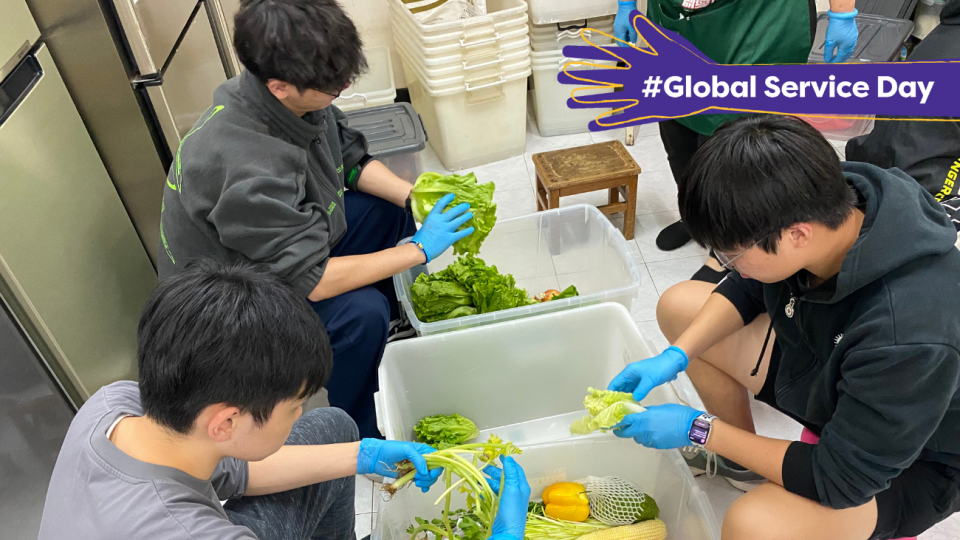
24 April 2024: Volunteers collecting edible surplus food from wet market.
Volunteering @Food Angel
In collaboration with Food Angel, the Volunteering @Food Angel initiative helped prepare nutritious meals with the surplus of food collected from the food industry, which will be distributed to the underprivileged communities.
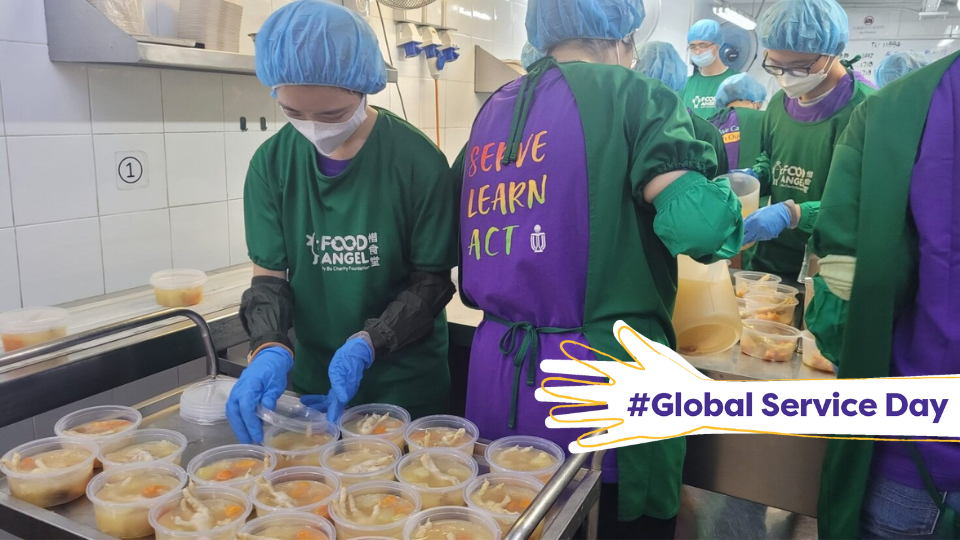
Start Saving Quit Wasting: Insights on Food Scarcity and Sustainibility
To provide students with in-depth understanding of food scarcity, the Start Saving Quit Wasting seminar had the Foodlink Foundation share their insights on the environmental burden of food overproduction and food insecurity.
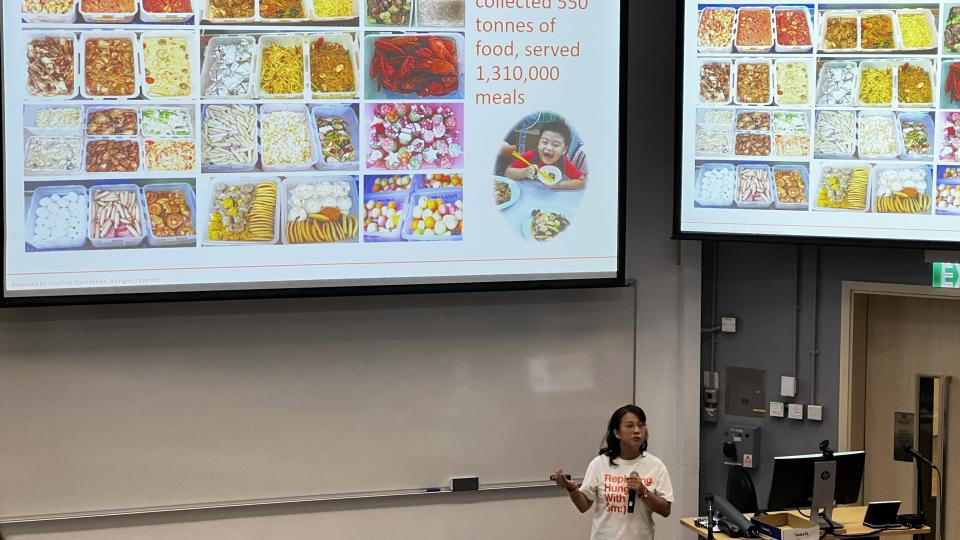
11 November 2023: Foodlink Foundation’s Head of Operations sharing her journey in Foodlink Foundation
Community Garden
The HKUST Community Garden was established in 2021 by a group of volunteers in the HKUST community. Through organic farming practices, including seed traceability and natural pest control, the garden fosters great understanding and appreciation of land conservation techniques and sustainable land use. The garden's collaborative approach extends to the broader community, thus creating a shared commitment to sustainable food production and responsible consumption.

The HKUST Community Garden
The Jockey Club Sustainable Campus Consumer Programme
The Jockey Club Sustainable Campus Consumer Programme's #EatForThePlanet initiative is a commendable effort to help university students and staff make more climate-conscious food choices on campus. Through engaging partners such as Food Made Good Hong Kong and Klimato to assess the carbon footprint of each menu, the low, medium, and high climate impact labels are created. As a result, our campus community can make conscious decisions when selecting meals, which might lead to ordering dishes with a smaller carbon footprint.
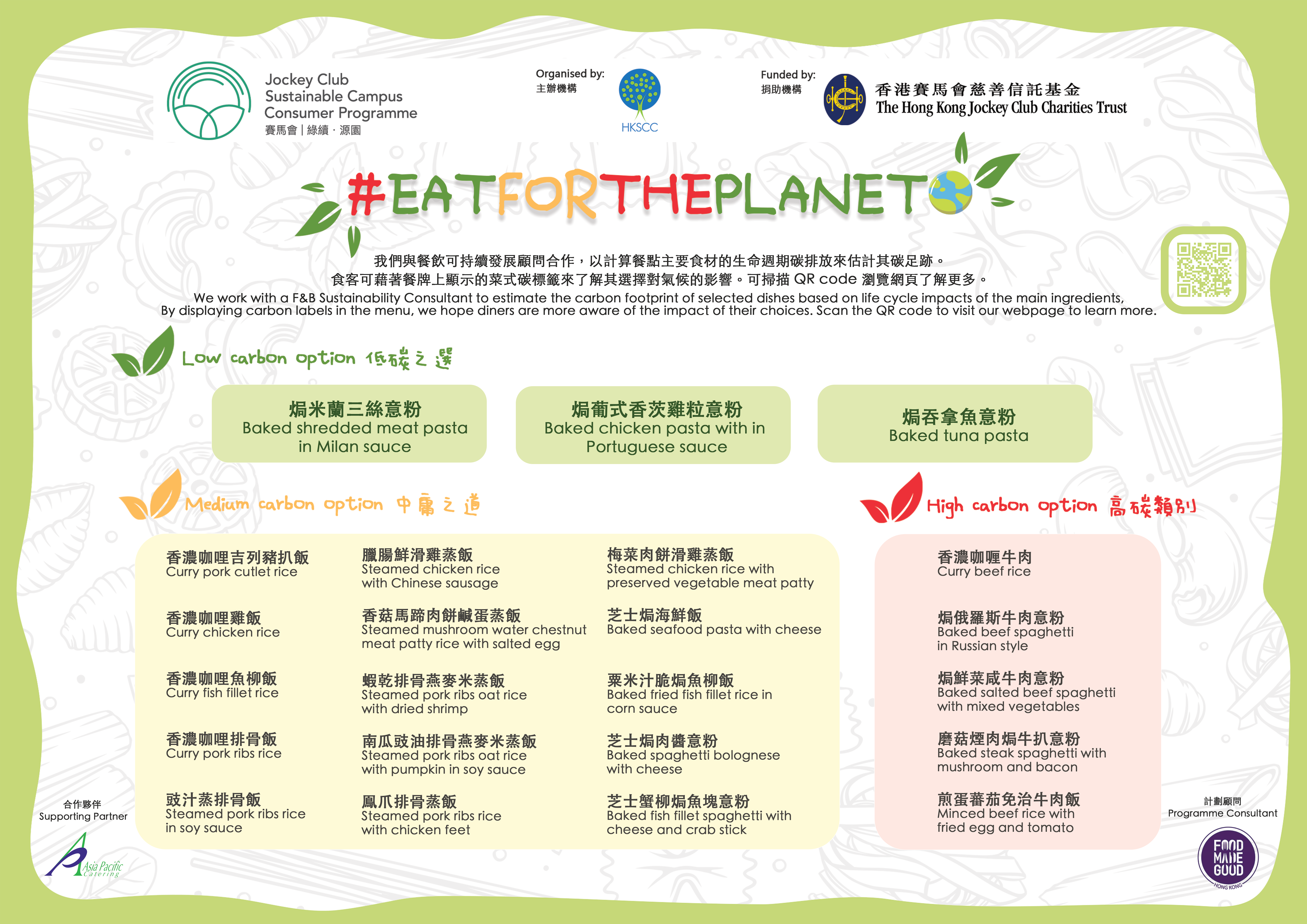
Carbon menu sample for Asia Pacific Catering